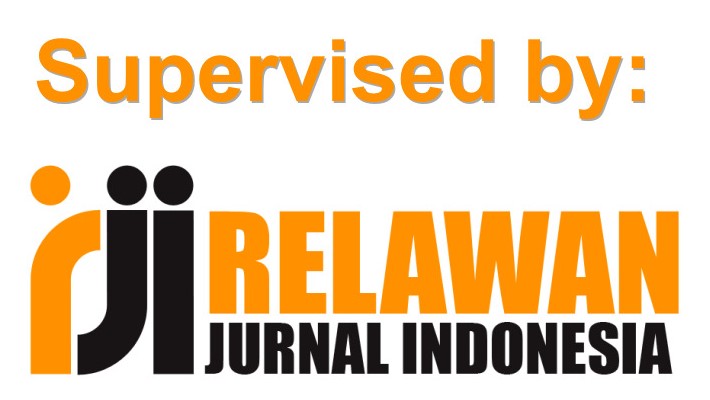Pengembangan Kemampuan Guru MGMP Bahasa Inggris dalam Membuat Video Pembelajaran
DOI:
https://doi.org/10.31100/matappa.v5i2.1831Keywords:
Guru Bahasa Inggris, Video pembelajaran, MGMP Bahasa Inggris, Wondershare FilmoraAbstract
Kegiatan pengabdian ini bertujuan membantu para guru MGMP Bahasa Inggris Madrasah Aliyyah (MA) Kabupaten Demak Jawa Tengah melakukan inovasi dengan membuat video pembelajaran dengan aplikasi Wondershare Filmora. Kegiatan diikuti oleh 29 guru Bahasa Inggris dan dilaksanakan secara luring pada Sabtu 22 Januari 2022 berupa pelatihan dan workshop operasi dasar aplikasi Filmora. Kegiatan dilanjutkan dengan pendampingan secara daring selama 2 minggu. Saat kegiatan daring, grup Whatsapp digunakan sebagai media komunikasi dan konsultasi antara Tim Pengabdi dan peserta, serta untuk membagikan karya video yang diselesaikan. Kegiatan berjalan baik dibuktikan dengan kemampuan peserta menyelesaikan video pembelajaran yang ditugaskan. Survei umpan balik menunjukkan para peserta sangat positif dengan kegiatan ini. Koneksi internet yang kurang stabil serta kapasitas perangkat (laptop) beberapa peserta yang kurang memadai telah menjadikan aktivitas pelatihan dan pembuatan video berjalan agak lambat.
ABSTRACT
This community service program was aimed at assisting the members of Madrasah Aliyyah English Teacher Association of Demak Regency Central Java to make innovation in their teaching by making instructional videos with Wondershare Filmora video editing application. Twenty-nine teachers participated in the training and workshop program conducted offline on Saturday January 2022 to practice the basic operations of Filmora. It was followed by an online assistance and consultation program for two weeks. Whatsapp group was used to facilitate communication and consultation between the Team of community service and the participants, and to share the participants’ works. The program worked well proven by the completion of the instructional videos assigned to the participants. The feedback survey shows participants’ positive responses. Unstable internet connection and low device (laptop) capacity have made the training and video-making activities progressed rather slowly.Â
References
Aliwardhana, H. (2021). Upaya meningkatkan ketrampilan guru dalam pembuatan video pembelajaran berbasis power point dan filmora melalui in house training. Al FIkrah Jurnal Studi Ilmu Pendidikan Dan Keislaman, 4(1), 22–43.
Appleton, J. J., Christenson, S. L., & Furlong, M. J. (2008). Student engagement with school: Critical conceptual and methodological issues of the construct. Psychology in Schools, 45(5). https://doi.org/10.1002/pits.20303
Bell, S. (2010). Project-based learning for the 21st century: Skills for the future. The Clearing House: A Journal of Educational Strategies, Issues and Ideas, 83(2), 39–43. https://doi.org/10.1080/00098650903505415
Carmichael, M., Reid, A., & Karpicke, J. D. (2019). Assessing the impact of educational video on student engagement, critical thinking and learning: The current state of play.
Chen, C. M., & Wu, C. H. (2015). Effects of different video lecture types on sustained attention, emotion, cognitive load, and learning performance. Computers and Education, 80, 108–121. https://doi.org/10.1016/j.compedu.2014.08.015
Farida, U. (2015). Islamisasi di Demak abad XV M: Kolaborasi dinamis ulama-umara dalam dakwah Islam di Demak. At-Tabsyir: Jurnal Komunikasi Penyiaran Islam, 3(2), 299–318. journal.stainkudus.ac.id/index.php/komunikasi/article/.../1485
Fikrie, F., & Ariani, L. (2019). Keterlibatan siswa (student engagement) di sekolah sebagai salah satu upaya peningkatan keberhasilan siswa di sekolah. Seminar Nasional & Call Paper Psikologi Pendidikan 2019, 103–110.
Herodotou, C., Sharples, M., Gaved, M., Kukulska-Hulme, A., Rienties, B., Scanlon, E., & Whitelock, D. (2019). Innovative pedagogies of the future: An evidence-based selection. Frontiers in Education, 4(October), 1–14. https://doi.org/10.3389/feduc.2019.00113
Köse, E., Taşlıbeyaz, E., & Karaman, S. (2021). Classification of instructional videos. In Technology, Knowledge and Learning. Springer Netherlands. https://doi.org/10.1007/s10758-021-09530-5
Kurniawati, D. (2016). The Use of Video to enhance the teaching and learning process of listening English for university students. English Education: Jurnal Tadris Bahasa Inggris, 9(2), 276–289. http://ejournal.radenintan.ac.id/index.php/ENGEDU
Lei, H., Cui, Y., & Zhou, W. (2018). Relationships between student engagement and academic achievement: A meta-analysis. Social Behavior and Personality, 46(3), 517–528. https://doi.org/10.2224/sbp.7054
Nurbaiti, F. (2021). Peningkatan kompetensi guru dalam pembuatan video pembelajaran melalui in house training (IHT) di SMP Negeri 26 Depok. Jurnal Pendidikan Indonesia, 2(3), 375–386.
Sulihin, S., Asbar, A., & Elihami, E. (2020). Developing of instructional video media to improve learning quality and student motivation. EDUMASPUL: Jurnal Pendidikan, 4(2), 51–55. https://ummaspul.e-journal.id/maspuljr/article/view/692/346
Tanang, H., Djajadi, M., Abu, B., & Mokhtar, M. (2014). Challenges of teaching professionalism development: A case study in Makassar Indonesia. Journal of Education and Learning, 8(2), 132–143. https://doi.org/10.11591/edulearn.v8i2.215
Urbancová, H., Vrabcová, P., Hudáková, M., & Petrů, G. J. (2021). Effective training evaluation: The role of factors influencing the evaluation of effectiveness of employee training and development. Sustainability (Switzerland), 13(2721), 1–14. https://doi.org/10.3390/su13052721
Utami, A. R., Oktaviani, L., & Emaliana, I. (2021). The use of video for distance learning during Covid-19 pandemic: Students’ voice. Jet Adi Buana, 6(02), 153–161. https://doi.org/10.36456/jet.v6.n02.2021.4047
Wibawa, B., & Muhidin, A. (2021). The effect of instructional videos on learning performance. AIP Conference Proceedings, 2331(April). https://doi.org/10.1063/5.0041759
Yu, H., Liu, P., Huang, X., & Cao, Y. (2021). Teacher online informal learning as a means to innovative teaching during home quarantine in the COVID-19 pandemic. Frontiers in Psychology, 12(June), 1–12. https://doi.org/10.3389/fpsyg.2021.596582
Zhang, D., Zhou, L., Briggs, R. O., & Nunamaker, J. F. (2006). Instructional video in e-learning: Assessing the impact of interactive video on learning effectiveness. Information and Management, 43(1), 15–27. https://doi.org/10.1016/j.im.2005.01.004
Downloads
Published
Issue
Section
Citation Check
License
Jurnal ini memberikan akses terbuka langsung dengan prinsip bahwa membuat penelitian tersedia secara bebas untuk publik mendukung pertukaran pengetahuan global yang lebih besar.
Semua artikel yang diterbitkan dapat di Akses secara Terbuka atau Gratis untuk semua orang baik untuk dibaca maupun diunduh di bawah lisensi CC-BY.
Ppenulis mempertahankan kepemilikan hak cipta untuk artikel mereka, tetapi penulis memberikan izin kepada orang lain untuk menggunakan konten publikasi di Matappa secara keseluruhan atau sebagian asalkan karya aslinya dikutip dengan benar.
Hak cipta mencakup hak eksklusif untuk mereproduksi dan menyampaikan artikel dalam semua bentuk dan media, termasuk cetak ulang, foto, mikrofilm dan reproduksi serupa lainnya, serta terjemahan. Reproduksi bagian manapun dari jurnal ini, penyimpanannya dalam basis data dan transmisi dengan bentuk atau media apa pun, seperti elektronik, salinan elektrostatik dan mekanik, fotokopi, rekaman, media magnetik.

MATAPPA is licensed under a Creative Commons Attribution 4.0 International License.








